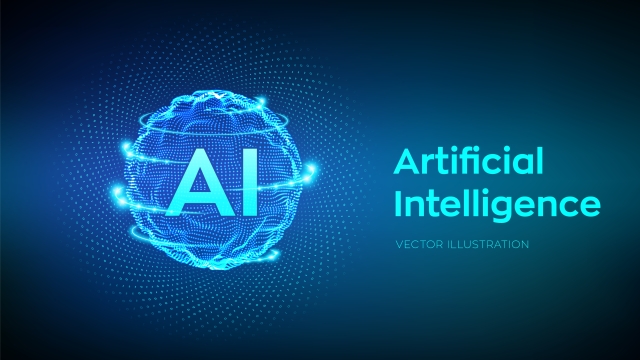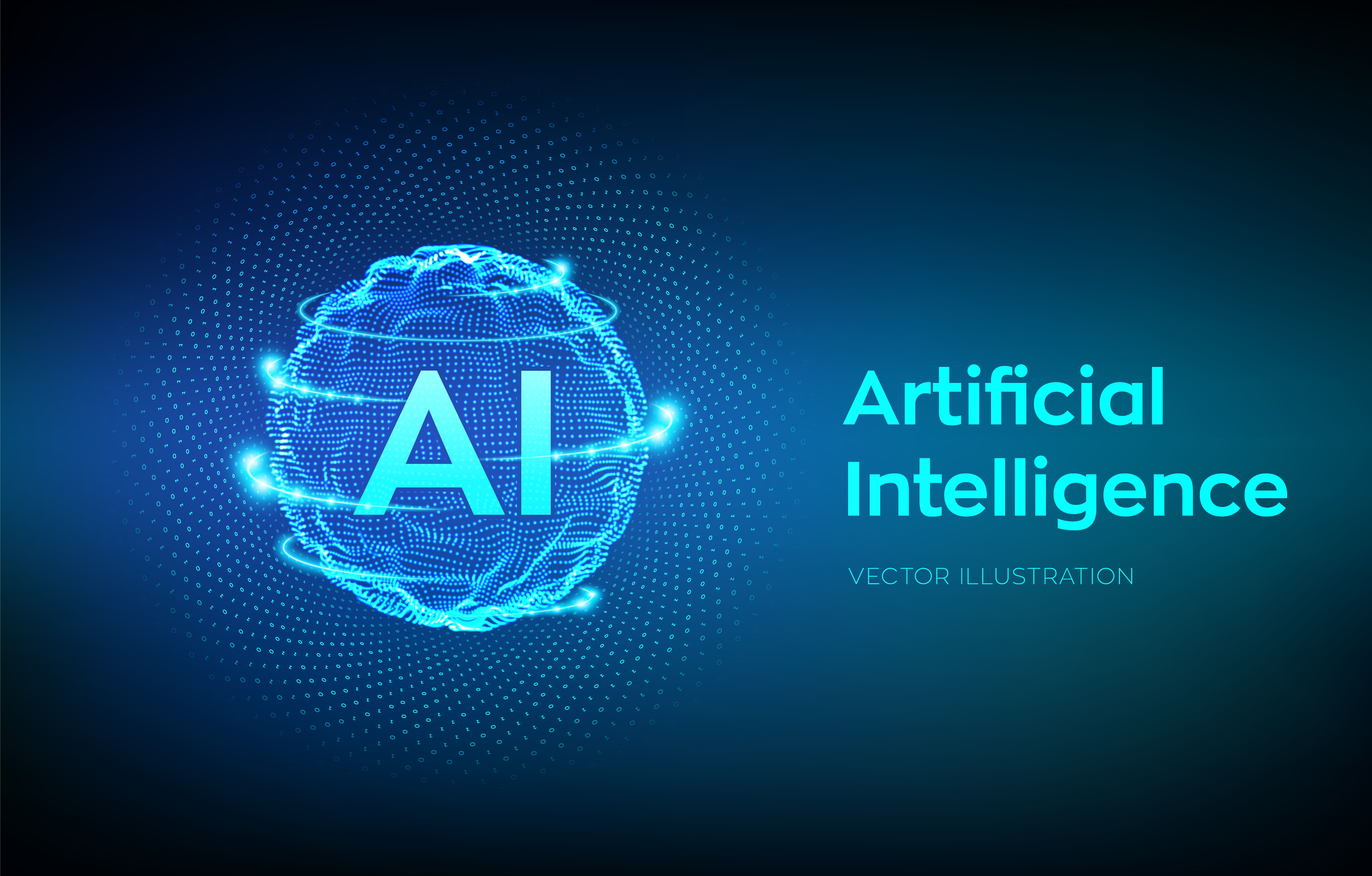
The Future Unveiled: The Rise of Artificial Intelligence

Artificial intelligence is a concept that has captured the imagination of many, often conjuring images of futuristic robots and advanced technologies. But what is artificial intelligence exactly, and what does its rise mean for society? In simple terms, artificial intelligence refers to the ability of machines or computer systems to perform tasks that would typically require human intelligence. It encompasses a vast range of technologies, including machine learning, natural language processing, and computer vision, all working together to enable computers to perceive, learn, reason, and make decisions.
As the world becomes increasingly interconnected and data-driven, the potential applications of artificial intelligence are expanding at an astonishing pace. From self-driving cars to virtual assistants, from personalized recommendations to advanced medical diagnosis, the impact of AI is already evident across various industries. And with ongoing breakthroughs in research and development, we are only scratching the surface of what AI can achieve.
The rise of artificial intelligence brings with it a multitude of opportunities and challenges. On one hand, AI has the potential to revolutionize productivity, enhance decision-making, and improve overall quality of life. It can enable businesses to streamline operations and deliver personalized experiences to customers. It can empower individuals by automating mundane tasks and enabling them to focus on higher-value activities. However, there are also concerns surrounding AI in terms of ethics, privacy, and the future of work.
In this article, we will delve deeper into the world of artificial intelligence, exploring its history, current applications, and future implications. We will examine the promises and pitfalls of AI, as well as its potential impact on various aspects of society, including economy, healthcare, education, and beyond. By understanding the rise of artificial intelligence and its far-reaching implications, we can better navigate the exciting yet complex landscape of this transformative technology.
Applications of Artificial Intelligence
AI has emerged as a game-changer in various industries, revolutionizing the way we live and work. Its applications span multiple domains, showcasing its versatility and potential to shape the future. From healthcare to transportation and finance to entertainment, artificial intelligence has embedded itself in our daily lives in ways we could have never imagined.
In the realm of healthcare, AI presents a multitude of opportunities. It can analyze patient data to identify potential diseases and provide accurate diagnoses. Moreover, AI-powered robots and virtual assistants are aiding doctors and nurses in performing complex surgeries, ensuring precision and reducing the risk of human error. The utilization of artificial intelligence in healthcare not only streamlines processes but also enhances patient care, leading to better treatment outcomes.
Transportation is another area experiencing a significant transformation due to the advancements in AI. Self-driving cars are being developed and tested, promising a safer and more efficient commute. AI algorithms continuously learn from real-world scenarios, allowing vehicles to make split-second decisions based on surrounding conditions. Additionally, logistics and supply chain management are benefiting from AI’s ability to optimize routes, manage inventory, and predict demand patterns, saving time and resources.
Financial institutions are harnessing the power of AI to improve their operations and provide better customer experiences. Chatbots with natural language processing capabilities assist customers in day-to-day banking activities, offering personalized recommendations and resolving queries promptly. AI algorithms also play a crucial role in detecting fraudulent transactions by analyzing vast amounts of data for suspicious patterns, bolstering security and reducing the risk of financial crimes.
The entertainment industry is not left behind in embracing artificial intelligence. AI algorithms can now analyze vast datasets to recommend personalized music, movies, or books based on individual preferences. Virtual reality and augmented reality experiences are becoming more immersive and lifelike, thanks to AI-enabled algorithms that understand and adapt to user behavior in real-time. Similarly, game developers are integrating AI to create more intelligent and challenging opponents, enhancing the overall gaming experience.
As artificial intelligence continues to advance, its impact will be felt across a plethora of sectors. From transforming healthcare and transportation to revolutionizing finance and entertainment, AI is poised to reshape our world in numerous ways, augmenting human capabilities and unlocking new opportunities for innovation and progress.
Ethical Concerns and Challenges
Artificial intelligence (AI) has undoubtedly revolutionized various aspects of our lives, but with this progress comes a set of ethical concerns and challenges. These ethical considerations arise due to the immense power and potential risks associated with AI technology.
1. Privacy and Personal Data Protection
The rise of AI has resulted in an abundance of data collection, and the handling of personal information has become a growing concern. As AI systems learn, adapt, and make decisions based on data, the need to ensure privacy and protect personal information becomes paramount. Questions about who has access to this data, how it is being used, and the potential for misuse or security breaches are critical ethical concerns that must be addressed.
2. Bias and Fairness in Decision-Making
AI systems are designed to analyze large amounts of data and make decisions accordingly. However, these systems can inadvertently perpetuate existing biases or discriminate against certain groups if they are trained on biased or incomplete data. Ensuring fairness and avoiding discrimination in AI decision-making processes is a significant ethical challenge that requires careful consideration and monitoring.
3. Potential Job Displacement and Economic Impact
One of the major concerns surrounding the rise of AI is the potential impact on employment. As AI and automation continue to advance, there is a fear that certain jobs may become obsolete, leading to significant job displacement and economic inequality. The ethical challenge lies in finding a balance between technological advancement and societal well-being, ensuring that AI implementation does not result in mass unemployment or exacerbate economic disparities.
As we embrace the advantages offered by artificial intelligence, it is crucial to acknowledge and address the potential ethical concerns and challenges it brings. By actively considering issues such as privacy, fairness, and the impact on the workforce, we can promote the responsible development and deployment of AI technologies, shaping a future that is both technologically advanced and ethically sound.
The Impact of AI on Society
Artificial intelligence (AI) has undeniably transformed various aspects of our society. Its rapid advancement in recent years has left a significant impact on both individuals and institutions. From revolutionizing industries to enhancing everyday lives, the rise of AI has been nothing short of revolutionary.
Virtual Receptionist Software
One area where AI has made a substantial impact is healthcare. With its ability to analyze vast amounts of medical data efficiently, AI has improved diagnosis accuracy and treatment planning. In addition, AI-powered robotics have made surgeries more precise, reducing the risk of human error. These advancements have not only saved lives but also improved the overall quality of healthcare services available to people around the world.
AI has also revolutionized the way businesses operate. Through predictive analytics, AI algorithms can analyze massive datasets to identify consumer preferences and market trends. This enables companies to make data-driven decisions and create personalized customer experiences. Furthermore, AI-powered chatbots have revolutionized customer service, providing quick and efficient support 24/7. Such advancements have boosted productivity and helped businesses thrive in an increasingly competitive marketplace.
One aspect of society profoundly influenced by AI is transportation. Self-driving cars have emerged as a prominent application of AI technology, aiming to make roads safer and transportation more efficient. These autonomous vehicles have the potential to reduce traffic congestion, minimize accidents caused by human error, and enhance overall road safety. Additionally, AI algorithms are also being used to optimize logistics and supply chain management, reducing costs and improving delivery systems.
In conclusion, the impact of AI on society cannot be overstated. From revolutionizing healthcare and transforming business operations to reshaping transportation, AI has the power to reshape our lives in profound ways. As AI continues to advance, it is crucial for policymakers, researchers, and society as a whole to navigate its implementation responsibly, ensuring that the benefits are harnessed while mitigating potential risks. The future holds exciting possibilities as we embrace the rise of artificial intelligence.



